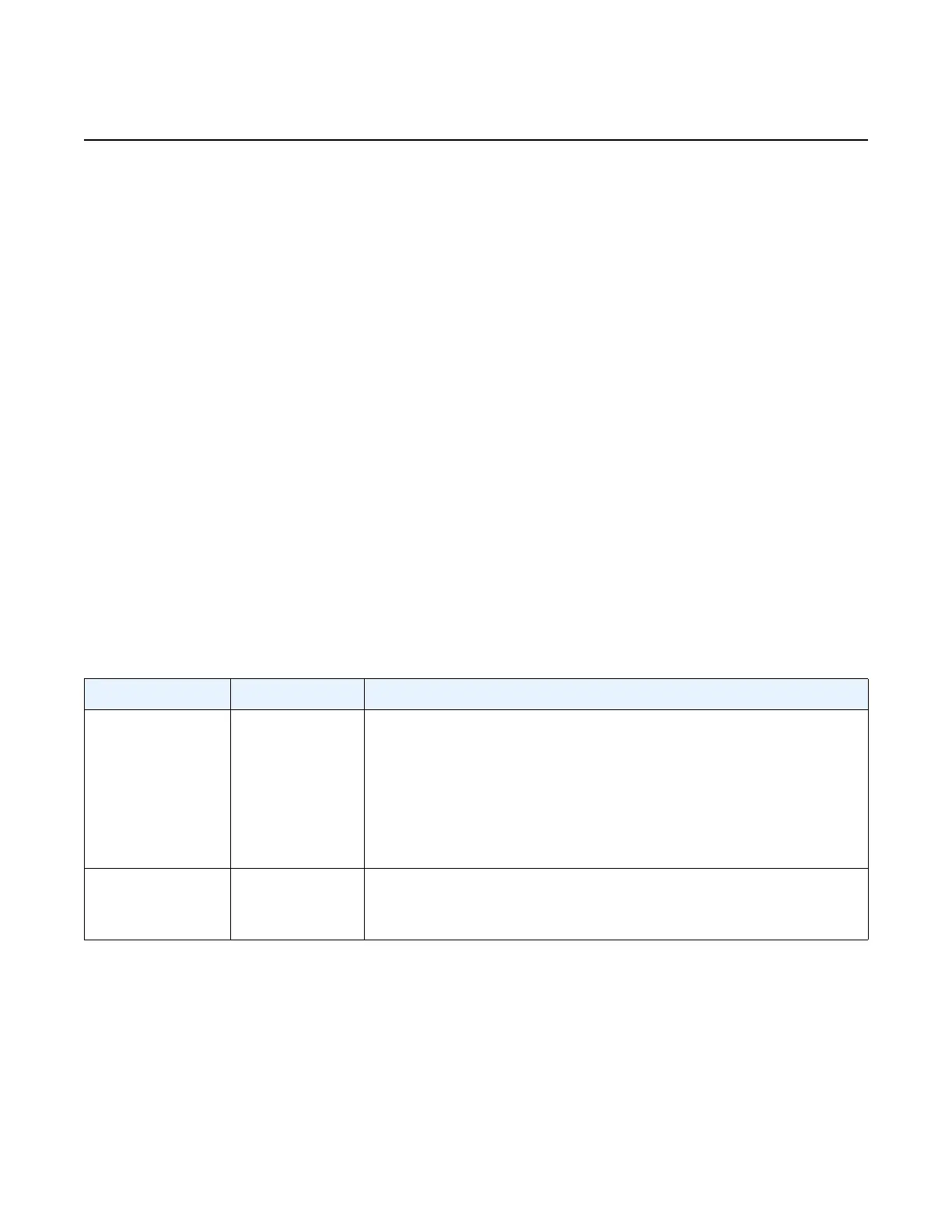Quality of Service Guide QoS and QoS Policies
Edition: 01 3HE 11014 AAAC TQZZA 133
Optional service egress QoS policy elements include:
• additional queues, up to a total of eight separate queues
• dot1p priority and DSCP value re-marking based on forwarding class
Each queue in a policy is associated with one or more of the supported forwarding
classes. Each queue can have its individual queue parameters, allowing individual
rate shaping of the forwarding classes mapped to the queue. More complex service
queuing models are supported in the 7705 SAR where each forwarding class is
associated with a dedicated queue.
The forwarding class determination per service egress packet is determined at
ingress. If the packet ingressed the service on the same 7705 SAR router, the
service ingress classification rules determine the forwarding class of the packet. If
the packet was received over a service transport tunnel, the forwarding class is
marked in the tunnel transport encapsulation.
Service egress QoS policy ID 1 is reserved as the default service egress policy. The
default policy cannot be deleted or changed.
The default service egress policy is applied to all SAPs that do not have another
service egress policy explicitly assigned. The characteristics of the default policy are
listed in Table 21.
Note:
1. See Table 4 for a list of adapter cards and buffer sizes.
Table 21 Default Service Egress Policy ID 1 Definition
Characteristic Item Definition
Queues Queue 1 One queue defined for all traffic classes:
•CIR = 0
• PIR = max (line rate)
• MBS = default (180 kilobytes)
• CBS = default (8 kilobytes for 512 byte buffer size, 18 kilobytes for
2304 byte buffer size)
• HP Only = default (10%)
Flows Default action One flow defined for all traffic classes:
• all traffic mapped to queue 1 with no marking of IEEE 802.1p or
DSCP values

